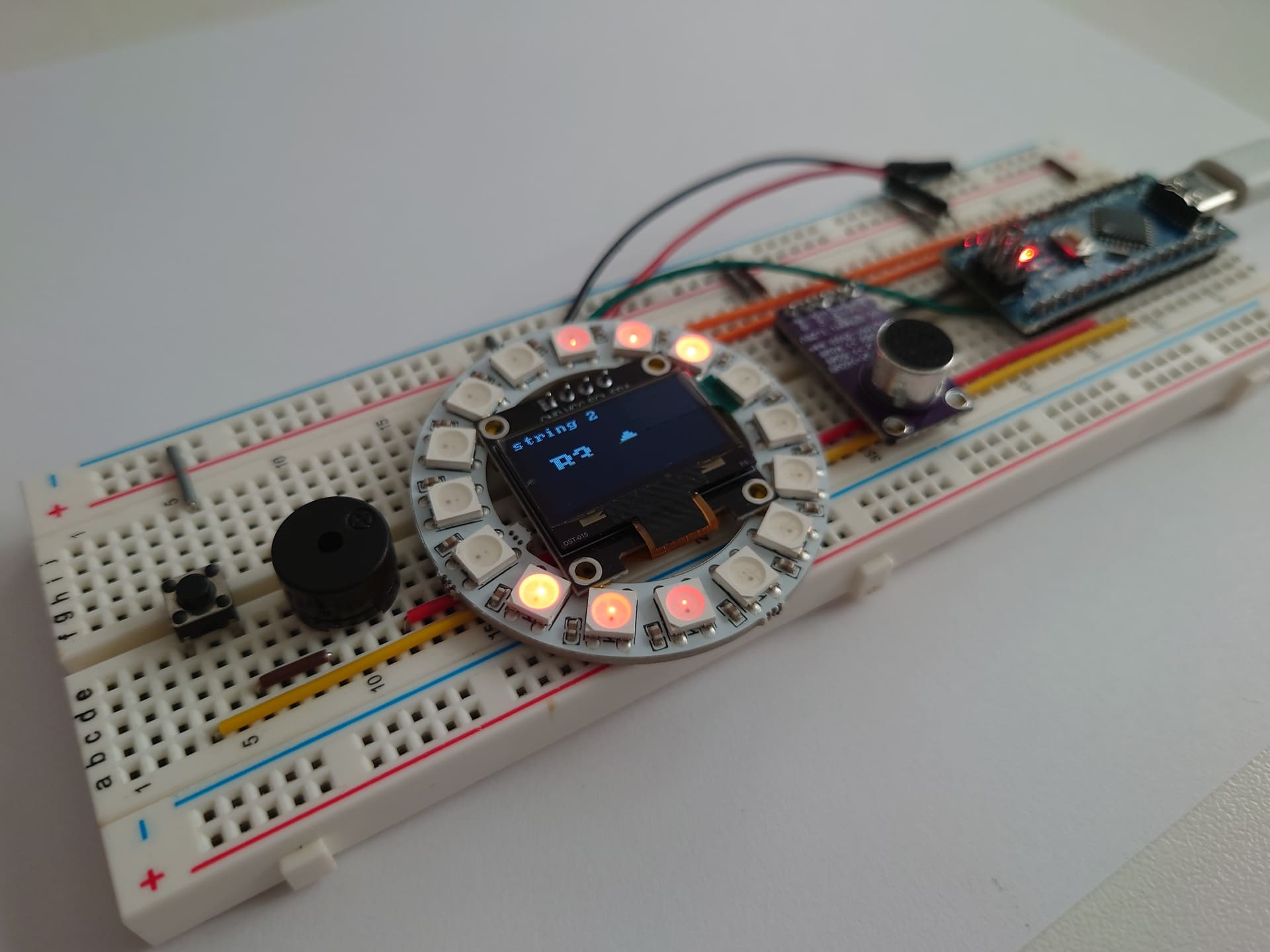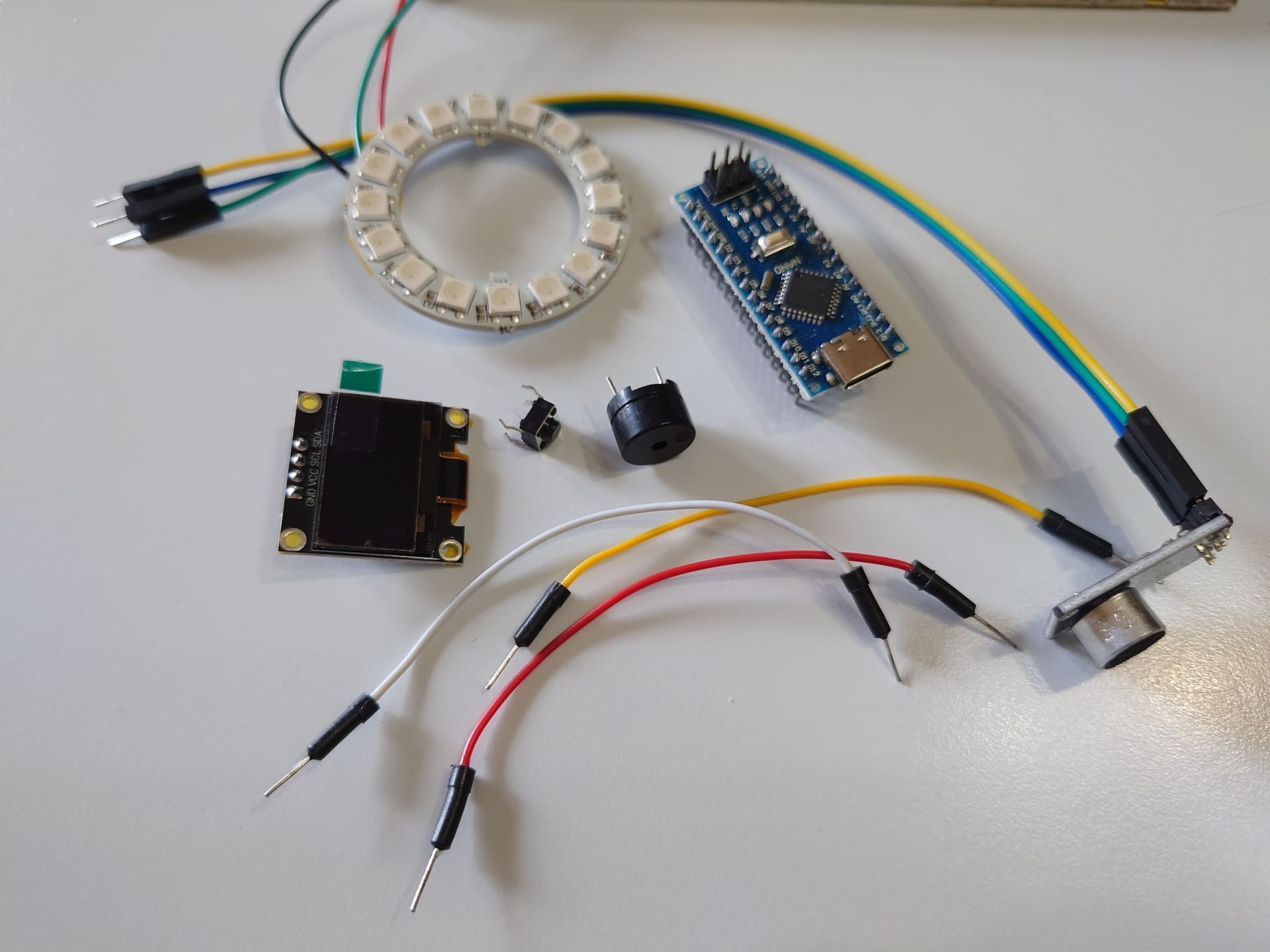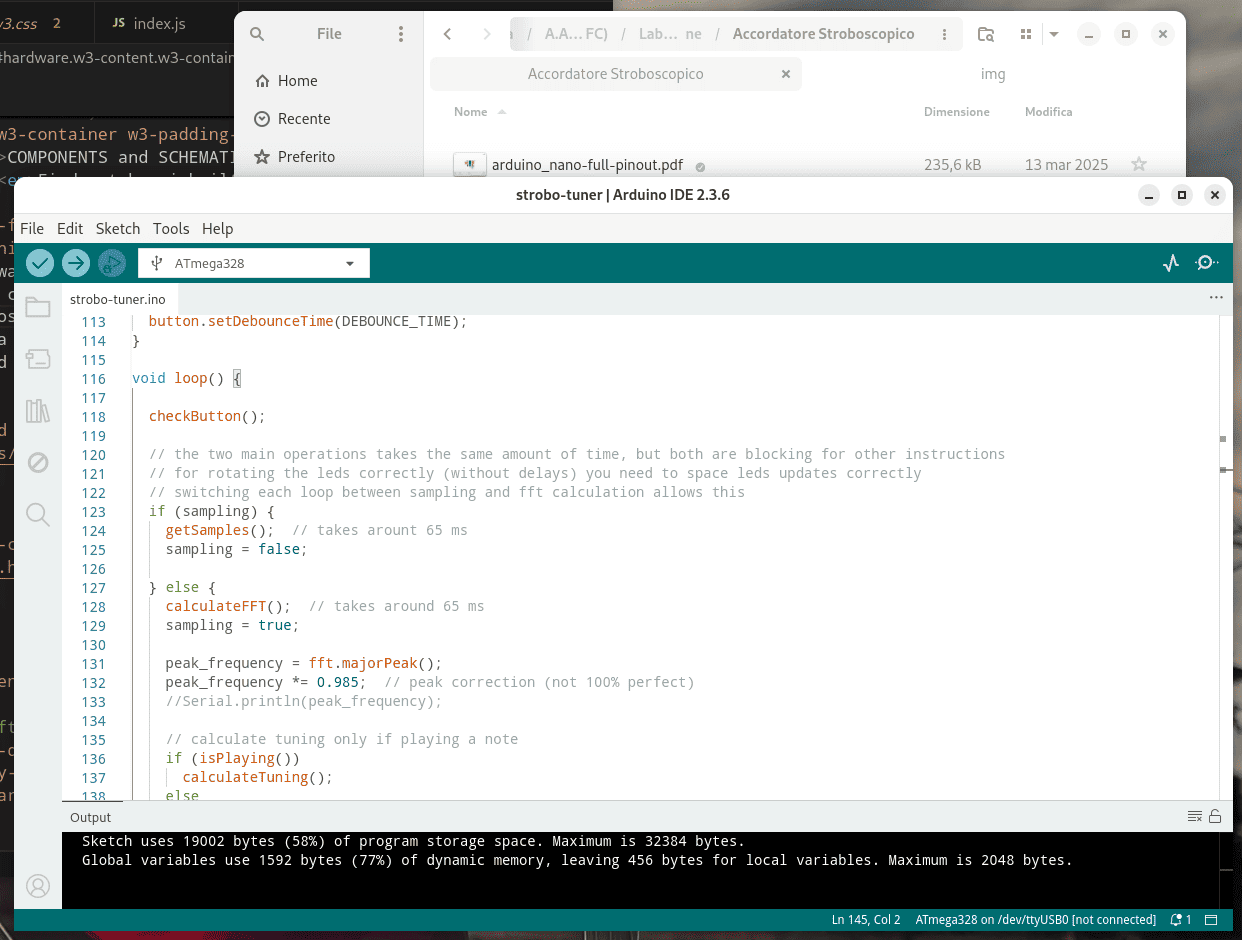THE PROJECT
A tuner but with an unique interface!

The aim of the project is to create a tuner for musical instruments but with a particular interface:
an object turns counterclockwise if the frequency of the played note is too high and clockwise if it is too
low.
The non-binding specifications have allowed a lot of freedom in the realization:
the rotation is shown using a ring of LEDs, and the audio processing is done on an Arduino.
A display is used to show the note you selected and a small speaker allows to listen to it for a rough first
tuning.
For simplicity, it was restricted to a guitar, but the idea can be expanded or modified to adapt to any
instrument!
An in-depth analysis of the specifications and how they were addressed is available on the dedicated page.
READ MORE
